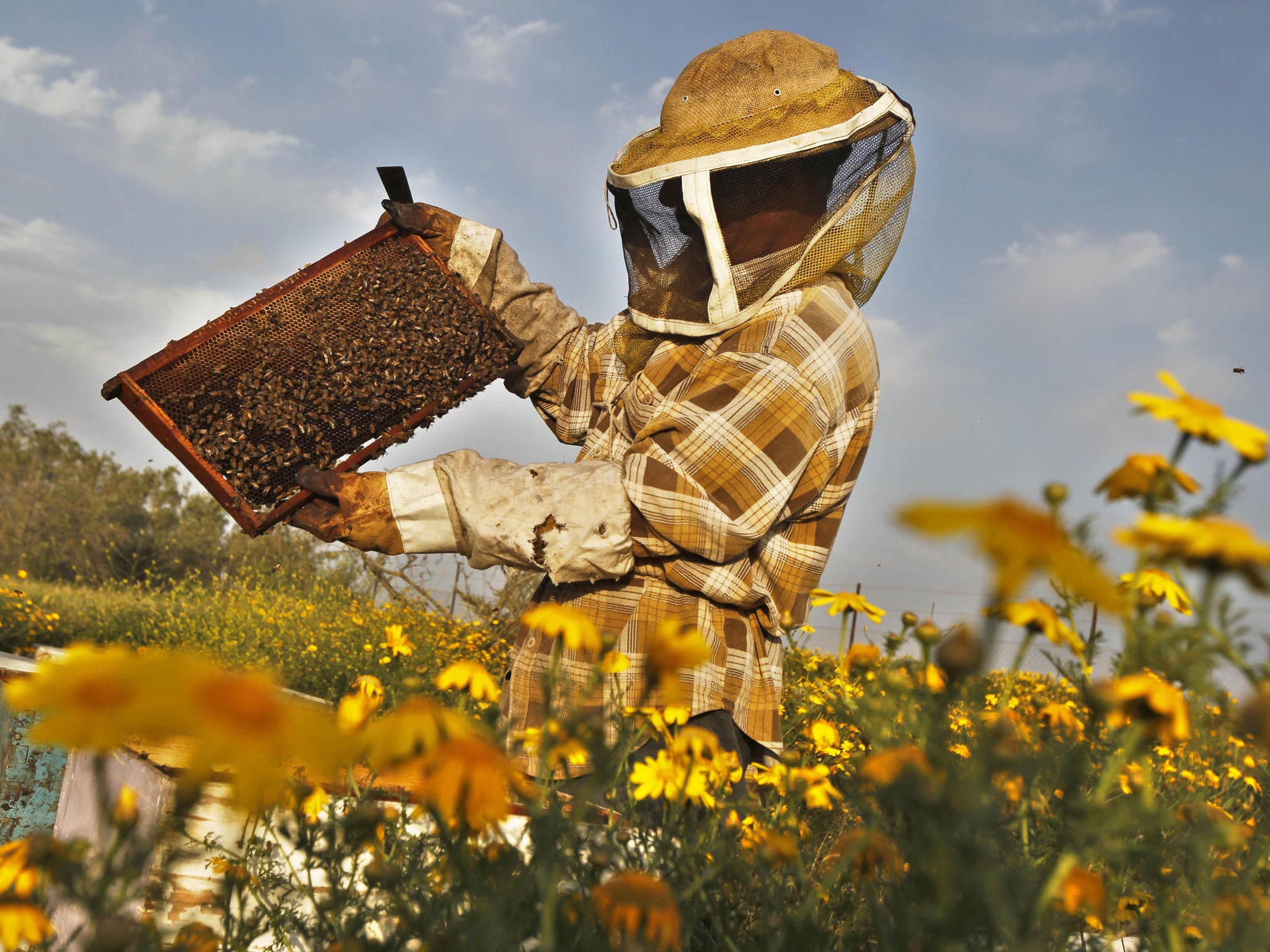Bacteria found in honeybee stomachs could be used as alternative to antibiotics, scientists claim
Raw honey has been used to treat infections for millennia - and now scientists may have pinpointed why it was so effective

Bacteria found in honeybees could be used as an alternative to antibiotics and in the fight against antibiotic-resistant strains of MRSA, scientists have claimed.
For millenia, raw unmanufactured honey has been used to treat infections.
Scientists believe its effectiveness could lie in a unique formula comprised of 13 types of lactic acid bacteria found in the stomachs of bees. The bacteria, which are no longer active in shop-bought honey, produce a myriad of active anti-microbial compounds.
The findings could be vital both in developing countries, where fresh honey is easily available, as well as for Western countries where antibiotic resistance is an increasingly concerning issue.
By applying the bacteria to pathogens found in severe human wounds - including MRSA - scientists from Lund University, Sweden, found that the formula from a bee’s stomach successfully counteracted the infections.
Researchers believe that the formula works so potently because it contains a broad spectrum of active substances, unlike conventional man-made antibiotics.
"Antibiotics are mostly one active substance, effective against only a narrow spectrum of bacteria. When used alive, these 13 lactic acid bacteria produce the right kind of antimicrobial compounds as needed, depending on the threat,” Dr Tobias Olofsson of the Medical Microbiology department at Lund Unviersity explained.
"It seems to have worked well for millions of years of protecting bees' health and honey against other harmful microorganisms.
"However, since store-bought honey doesn't contain the living lactic acid bacteria, many of its unique properties have been lost in recent times," he added.
To take the study forward, scientists will investigate wider clinical use against topical infections, on both humans and animals.
The findings are likely to give further ammunition to bee protection groups, after a separate study found that the use of neonicotinoids – the world’s most commonly used pesticides - damage vital bee populations.
It warned that the pesticides, which are linked to the decline of honeybees and other beneficial organisms including earthworms and butterflies, are having a dramatic impact on ecosystems that support food production and wildlife.
Join our commenting forum
Join thought-provoking conversations, follow other Independent readers and see their replies
Comments